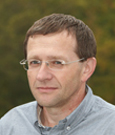
Vladimir Benes
EMBL Heidelberg
Germany
EMBL Course
Due to renewed restrictions related to the pandemic, we are unfortunately not able to host this course onsite. As a result, we are cancelling this course and apologise for the inconvenience.
Systems biology is a still expanding field of research aiming to understand at the molecular level how cells, tissues and organisms operate in their biological context. Among the key technologies driving this forward are next-generation sequencing and proteomics, as they provide powerful means to determine global expression levels of genes and proteins. Both fields have matured to a degree that they have now become accessible to researchers in many areas of biology. During this course, participants will gain theoretical insight in the structure of sequencing and proteomic data, and they will receive training in data analysis for the annotation, quantification and statistical analysis of gene and protein expression using various computational tools. In addition, training will be provided in the use of Cytoscape to derive biological insights from the integration of both data types.
This course is targeted at biologists and biochemists who are (starting to be) involved in both next-generation sequencing and mass spectrometry-based proteomics, but who are not experts in these fields.
The aim of this practical course is to provide insight in techniques that are frequently used for transcriptome and proteome analysis, and to provide hands-on experience turning primary data into information that can be used for further biological interpretation. To achieve these goals, participants will gain insight in the basic principles of gene expression analysis (RNAseq data quantification and differential expression analysis), protein identification and quantification, and they will be trained in the use of software tools to analyse sequencing and proteomic data (SearchGUI, PeptideShaker, MaxQuant). In addition, the course will provide insight in the complementarity of transcriptome and proteome data by their integrative analysis via Cytoscape.

EMBL Heidelberg
Germany
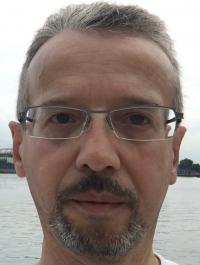
University of Turin
Italy

National University of Singapore
Singapore
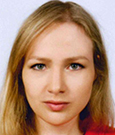
Ghent University
Belgium
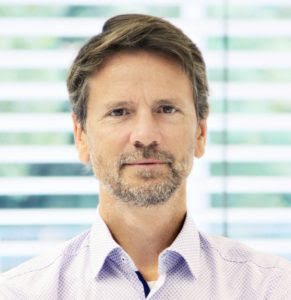
German Cancer Research Centre (DKFZ)
Germany
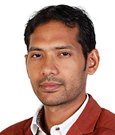
EMBL Heidelberg
Germany
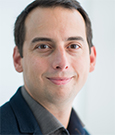
VIB University of Ghent
Belgium
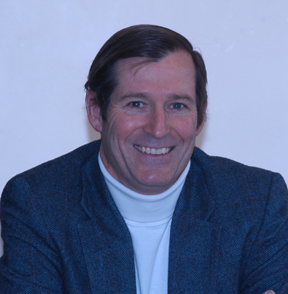
University of California, San Francisco
USA
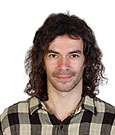
EMBL Heidelberg
Germany

EMBL Heidelberg
Germany

University of Turin
Italy

German Cancer Research Centre (DKFZ)
Germany
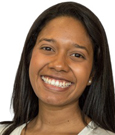
Course and Conference Team Lead
EMBL Heidelberg
Germany
Got something to say? Tweet it with #EMBLDataIntegration
The preliminary programme below is a draft and is subject to change.
| Time | Speaker | Location |
|---|---|---|
| 09:30 – 10:30 | Arrival, welcome and safety introductions | Courtyard Room |
| 10:30 – 11:00 | Q&A to Vladimir’s talks RNAseq part I and II | Courtyard Room |
| 11:00 – 11:30 | Coffee break | |
| 11:30 – 12:30 | Q&A to Raffaele’s talk RNAseq: Reads to genes | Courtyard Room |
| 12:30 – 14:00 | Lunch | |
| 14:00 – 16:00 | Practical: From Reads to Genes (Bulk and single cell) Raffaele Calogero – University of Torino, Italy | Courtyard Room |
| 16:00 – 16:30 | Coffee break | |
| 16:30 – 18:00 | Q&A on RNAseq and scRNAseq | Courtyard Room |
| 18:00 – 18:20 | Packing and cleaning of work stations | Courtyard Room |
| 18:20 | Shuttle to ISG Hotel | ATC entrance |
| 18:45 | Dinner | ISG Hotel |
| Time | Speaker | Location |
|---|---|---|
| 09:30 – 10:30 | Flash talk presentations | Courtyard Room |
| 10:30 – 12:30 | Practical & theory: Differential expression analysis. Raffaele Calogero – University of Torino, Italy with flexible coffee break | Courtyard Room |
| 12:30 – 14:00 | Lunch | |
| 14:00 – 16:00 | Practical session: Ribosome profiling Gerben Menschaert – University of Ghent, Belgium | Courtyard Room |
| 16:00 – 16:30 | Coffee break | |
| 16:30 – 18:30 | Lecture/practicals: Ribosome profiling Gerben Menschaert – University of Ghent, Belgium | Courtyard Room |
| 18:30 – 18:50 | Packing and cleaning of work stations | Courtyard Room |
| 18:50 – 19:50 | Dinner | |
| 20:00 | Shuttle to ISG Hotel | ATC entrance |
| Time | Speaker | Location |
|---|---|---|
| 9:30 – 11:00 | Introduction to Proteomics, Jeroen Krijgsveld | Courtyard Room |
| 11:00 – 11:30 | Coffee break | |
| 11:30 – 12:30 | Lecture: Quantitative proteomics: SILAC and other MS1-based approaches Jeroen Krijgsveld – DKFZ, Germany | Courtyard Room |
| 12:30 – 14:00 | Lunch | |
| 14:00 – 15:00 | Lecture: Quantitative proteomics: TMT Mikhail Savitski – EMBL Heidelberg, Germany | Courtyard Room |
| 15:00 – 16:00 | Lecture: Bioinformatics for proteomics Lennart Martens – University of Ghent, Belgium | Courtyard Room |
| 16:00 – 16:30 | Coffee Break | |
| 16:30 – 17:30 | Q&A to Bioinformatics for proteomics Lennart Martens – University of Ghent, Belgium | Courtyard Room |
| 17:30 – 17:50 | Packing and cleaning of work stations | Courtyard Room |
| 18:00 – 19:00 | Dinner | |
| 19:20 | Shuttle to ISG Hotel | ATC entrance |
| Time | Speaker | Location |
|---|---|---|
| 09:30 – 10:00 | Practical Session: Turning data into information-peptide and protein identification, database searching Lennart Martens – University of Ghent, Belgium with flexible coffee break | Courtyard Room |
| 10:00 – 12:00 | Lecture: Introduction to MaxQuant; analysis of MS data Daria Fijalkowska – University of Ghent, Belgium | Courtyard Room |
| 12:00 – 13:30 | Lunch | |
| 13:30 – 14:00 | Practical Session: Proteomics data interpretation Daria Fijalkowska – DKFZ, Germany | Courtyard Room |
| 14:30 – 16:30 | Lecture: P-values and multiple testing correction Hyungwon Choi – National University of Singapore, Singapore | Courtyard Room |
| 16:30 – 17:30 | Coffee Break | |
| 17:30 – 17:50 | Packing and cleaning of work stations | Courtyard Room |
| 18:00 | Shuttle to ISG Hotel | |
| 18:00 | Dinner |
| Time | Speaker | Location |
|---|---|---|
| 09:30 – 10:00 | Q&A to Bioinformatic tools for data comparison and integration John “Scooter” Morris – University of California, San Francisco | Courtyard Room |
| 10:00 – 12:30 | Practical: Introduction to Cytoscape Manjeet Kumar – EMBL Heidelberg, Germany John “Scooter” Morris – University of California, San Francisco, USA with flexible coffee break | Courtyard Room |
| 12:30 – 14:00 | Lunch | |
| 14:00 – 16:00 | Practical: Introduction to Cytoscape Manjeet Kumar – EMBL Heidelberg, Germany John “Scooter” Morris – University of California, San Francisco, USA | Courtyard Room |
| 16:00 – 16:30 | Coffee Break | |
| 16:30 – 17:30 | Lecture and Practical: Enrichment analysis Manjeet Kumar – EMBL Heidelberg, Germany John “Scooter” Morris – University of California, San Francisco, USA | Courtyard Room |
| 17:30 – 17:50 | Packing and cleaning of work stations | Courtyard Room |
| 18:00 | Shuttle to ISG Hotel | ATC entrance |
| 18:30 | Dinner |
| Time | Speaker | Location |
|---|---|---|
| 9:30-10:30 | Application talk: Network-oriented integrative multi-omics analysis of tissues and fluids – case studies in cancer and cardiovascular diseases Hyungwon Choi – National University of Singapore, Singapore with flexible coffee break | Courtyard Room |
| 10:30-13:00 | Practical Session: Data integration John “Scooter” Morris – University of California, San Francisco, USA | Courtyard Room |
| 13:00-14:30 | Lunch | |
| 14:30-17:00 | Practical Session: Data integration John “Scooter” Morris – University of California, San Francisco, USA with flexible coffee break | Courtyard Room |
| 17:00-17:30 | Course wrap-up and farewell | Courtyard Room |
| 17:30 | Bus to Heidelberg train station and city center | ATC entrance |
The course is limited to 16 participants. For selection purposes, please note that your application will not be considered without a letter of motivation.
Registration Fees include admission, course materials, COVID-19 safety measures, meals and coffee breaks.
Participants are expected to book and pay their own accommodation and travel expenses.
| Academia | €690 |
| PhD Student | €690 |
| Industry | €1150 |
The registration fee should be paid only after acceptance to the course. The results will be announced approximately 2-3 weeks after the application deadline.
After you have logged in and successfully registered, you will receive an email asking you to submit your motivation letter. Click on the link provided and enter your motivation letter in the text box provided. Alternatively you can submit your motivation letter by clicking on the link on the confirmation page directly after registering.
Instructions
Please note:
For more detailed information, follow the instructions provided in our video on how to submit a course motivation letter.
For further information about registration and motivation letter submission please refer to the FAQ page.
Limited financial assistance is provided by the EMBL Advanced Training Centre Corporate Partnership Programme and EMBO in the form of both registration fee waivers and travel grants. Availability is limited to participants attending on-site events in Heidelberg and will be indicated during the abstract or motivation letter submission process.
Your place in the meeting is only confirmed by paying the registration fee, which is mandatory even when receiving a fee waiver.
The fee waiver will cover the registration sum that you have paid to attend the course or conference.
The travel grant will cover the cost of travel (airfare, train, bus, taxi, accommodation, visa, and/or registration fees*) and is provided up to specified caps which are normally as follows:
– up to €400 for participants travelling to an EMBL Course, EMBL Conference or EMBO|EMBL Symposium from within Europe.
– up to €1000 for participants travelling to an EMBL Course, EMBL Conference or EMBO|EMBL Symposium from outside Europe.
– up to €500 for any participant travelling to an EMBO Practical Course or EMBO Workshop.
– up to €1000 for any participant working in Chile, India, Singapore or Taiwan travelling to an EMBO Practical Course or EMBO Workshop.
*Registration fees are only covered for EMBO Practical Courses or EMBO Workshops
The organisers may reduce the grant cap to accommodate more participants. Recipients will be notified of their travel cap amount when they are informed of the outcome of their application. Original receipts must be provided with your signature for all costs incurred within two months of completion of travel. Scanned copies cannot be accepted.
Applies to selected courses only. Availability will be indicated during the abstract or motivation letter submission process.
This grant covers costs related to your attendance to the course (registration, travel and accommodation costs). The grant is restricted to PhD students and postdocs who conduct basic biomedical research.
Whether you are eligible to apply for a travel grant, depends on when you received your university entrance qualification (e.g. Abitur, A-Levels, High School Diploma, Final State Examination):
– for PhD and MD students, as well as graduates, the university entrance qualification must not have been obtained more than 11 years ago at the time of the envisaged course
– for postdocs, the university entrance qualification must not have been obtained more than 13 years ago at the time of the envisaged course
You may apply for financial assistance when submitting your abstract for conferences. In your application, you will be asked to answer questions regarding why your lab cannot fund your attendance and how your attendance will make a difference to your career. Application for financial support will not affect the outcome of your registration application.
The scientific organisers will select the recipients of all financial assistance during the motivation letter or abstract selection process. Results will be announced approximately 6-8 weeks before the event start date, however for some events this may be delayed. Selection results do not impact your admission to the meeting. Selection is based on your current work or study location, the reasons for needing financial support and the impact this event will have on your career.
Costs will be reimbursed after the meeting only once a reimbursement form and original receipts (from travel costs) have been received.
See our list of external funding opportunities and information on attending a conference as an event reporter.
For further information about financial assistance please refer to the FAQ page.
Single rooms have been reserved for 6 nights (5 – 11 March 2022) at the ISG Hotel. After the selection process, selected participants should contact the hotel directly to make a booking (booking code PRO22-01). We recommend that all course participants stay at the ISG Hotel which is the dedicated hotel for the course.
Shuttle buses will go from the ISG Hotel to EMBL and back, mornings and evenings. A bus schedule and location of the bus stops will be made available prior to the meeting.
Address: EMBL Heidelberg, Meyerhofstraße 1, 69117 Heidelberg, Germany
For further information on getting to EMBL Heidelberg visit our Travel Information page.
For enquiries about accommodation and local transportation please refer to the FAQ page.
Below you will find the software and technical requirements for this course.
The EMBL eCampus learning platform will be used to collaborate, communicate and network with all of the course participants. All participants will receive information on how to join shortly before the course. We recommend using Chrome, Safari or Mozilla Firefox browsers for eCampus.
Please find additional information including FAQs, terms and conditions, COVID-19 safety policy and travelling to EMBL on our Information for Participants page.
Sponsorship Opportunities
We offer a variety of event sponsoring possibilities, with the flexibility to select a set sponsorship package or combine individual sponsorship options to suit your event budget. Discounts are available for companies sponsoring multiple events at EMBL Heidelberg. View other conferences, or contact sponsorship@embl.de for further information.
If you are interested in becoming a media partner of this event, please visit our media partnerships webpage.
Date: 6 - 11 Mar 2022
Location: EMBL Heidelberg
Deadline(s):
Application: Closed
Organisers:
Contact: Maria Bacadare